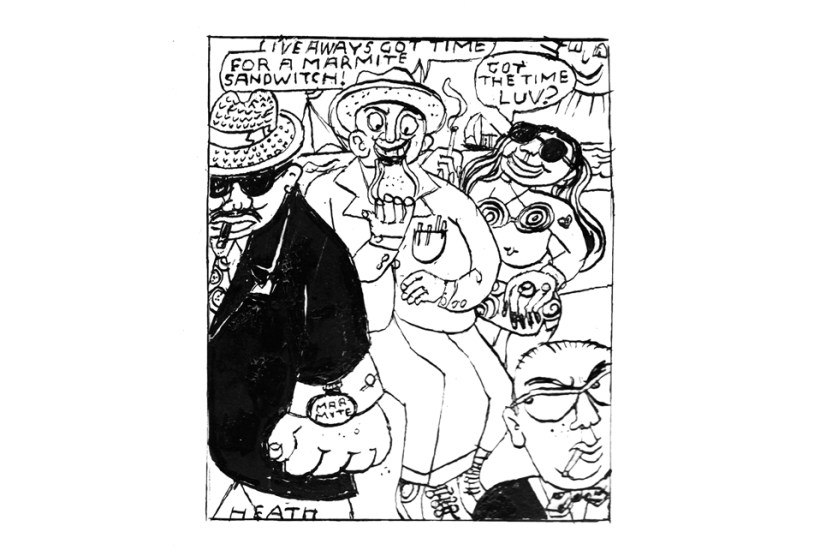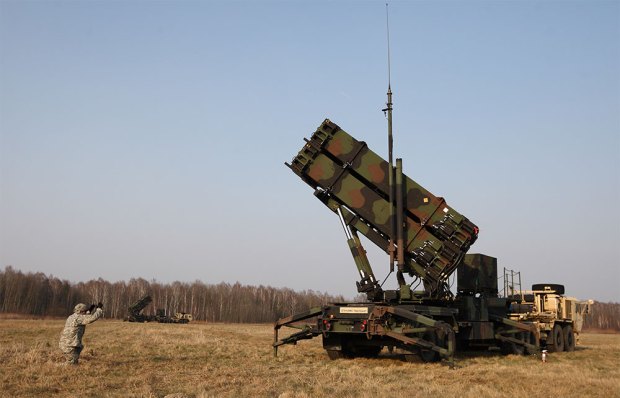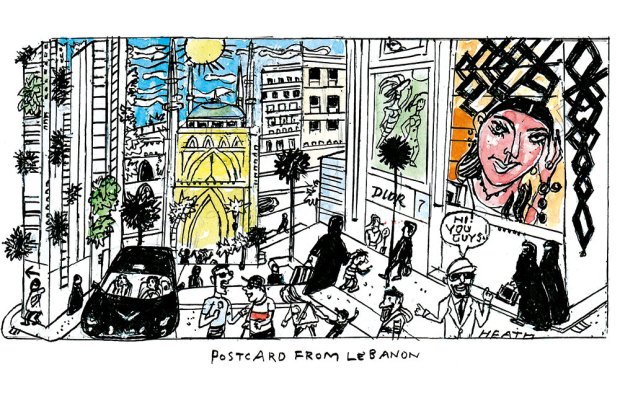‘You’re late. About four years too late.’ The lady in the car-hire office gave a casual shrug and turned her gaze towards the perpetual traffic jam in the street outside. Mercedes squeezing past BMWs squeezing past customised 4×4 Jeeps. There’s plenty of wealth in Albania if you go to the right places. Or the wrong ones. ‘It’s all mafia money,’ she went on. ‘This is where they come to spend their money in the summer. It wasn’t like this a few years ago. Now the prices here have gone crazy.’
Put it down to poor research but this wasn’t what we were expecting. The phrase ‘Albanian Riviera’ had a rather lovely ring to it. We had envisaged head-scarved old ladies watering their window boxes, and pristine beaches untouched by the package tourism of nearby Greece and Croatia. The last time I was in Albania was a quarter of a century ago during the Kosovo war, when Emirati Puma helicopter pilots flew us journalists through wild mountain ravines to a place called Kukes. What was it going to be like going back there with a wheelchair, I wondered. Well, getting there was the easy part. My friend Richard and I caught the hydrofoil from Corfu to the Albanian port of Sarande. No checks, just a wave through the gates and we were out on the street and an overpriced taxi ride to our hotel, like the rooms too, at more than €150 a night. The bargain boat had definitely left port some time ago.
This being the beginning of yet another Mediterranean heatwave, we waited for the 37°C daytime temperature to cool before joining the promenade at sunset. It was a lovely scene: families out strolling beneath the palm trees, a few people fishing from the dock, the lights of Corfu twinkling across the bay. ‘Let’s try this place,’ said Richard. I ordered sea bass, which was excellent. He ordered tuna. ‘Oh my god,’ he said. ‘This is disgusting.’ He called the waiter over. ‘This tuna is inedible,’ he told him. ‘I know,’ said the waiter and wandered off, with no explanation.
Inland, things improved. We hired a car and drove to what must rank as one of the prettiest yet most wheelchair-challenged places in Europe. Girokaster is a gem: a hilltop town full of quaint Ottoman-era houses, slanting cobbled streets, a Unesco-listed old town and a magnificent medieval castle with cannons and ramparts looking down on to the bustling bazaar below and the green sweep of the Drina Valley shimmering in the haze. Girokaster is also the birthplace of Albania’s infamous former dictator, Enver Hoxha, the man who for decades kept that country isolated from the world and locked down in Stalinist oppression. He is not missed by many.
You can’t go far in Albania without seeing one of the infamous concrete pillboxes that still dot the mountainous landscape. Hoxha had them built in their thousands, convinced that his country could be invaded at any minute. It never was. Days later, I found myself in another, very different post-communist state: the Czech Republic, flying into Prague to cover a rare public speech by the chief of MI6, Sir Richard Moore. My crew and I arrived early, in time to set up. Once again, this place was a challenge for anyone in a wheelchair, with its steep, cobbled courtyard, steps and staircases, but the embassy staff had kindly thought ahead and provided ramps. The ambassador showed me round the garden, where swallowtail butterflies flitted among the well-tended lavender, and a balcony that looked out over the red-tiled roofs of old Prague. So many of Britain’s finest embassies have been sold off to save money – our mission in Madrid is now housed in some ghastly plate-glass tower block – but not this one. Visiting dignitaries love it and so do the staff, so I really hope it stays put.
Sir Richard is a quietly thoughtful man, as you would expect of someone in his profession. He chose the Czech Republic to deliver his speech (nobody calls it by its latest official name, Czechia) to mark 55 years since Russian tanks rolled across the border to crush the Prague Spring democracy movement. Sound familiar? Diplomats, journalists and spooks all gathered in the drawing room of the British embassy to hear him denounce Russia’s failures in Ukraine and speculate on the life expectancy of the mutinous Wagner leader Yevgeny Prigozhin. Some bright spark in the audience spotted his cufflinks and asked him about them. They were in the shape of a Marmite jar, with one marked ‘Love’ and the other ‘Hate’. ‘I’m a lover,’ concluded the chief of Britain’s Secret Intelligence Service, and then he slipped quietly out of the building and was gone.
Got something to add? Join the discussion and comment below.
Get 10 issues for just $10
Subscribe to The Spectator Australia today for the next 10 magazine issues, plus full online access, for just $10.
Frank Gardner is the BBC’s security correspondent and author of the Luke Carlton series of spy novels.
You might disagree with half of it, but you’ll enjoy reading all of it. Try your first month for free, then just $2 a week for the remainder of your first year.














Comments
Don't miss out
Join the conversation with other Spectator Australia readers. Subscribe to leave a comment.
SUBSCRIBEAlready a subscriber? Log in